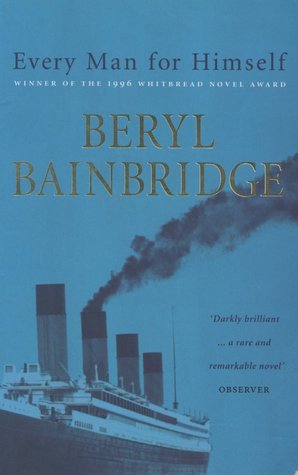What do you think?
Rate this book


214 pages, Paperback
First published January 1, 1996
We drank just enough to heighten our perceptions, so that when we began our inspection of the ship I fancy we'd loosened that grey veil of sophistication common to our kind.There are some stories that affect us in a deep, inescapable way, and the Titanic saga is surely one of those. This book made me do some historical research into the Titanic passengers Bainbridge’s characters are based on, which turned into an hours-long rabbit hole for me. There’s so much to read online, especially now following the Titan tragedy this past week. The book leaves us with a number of questions, but isn't that the whole enigma of the Titanic story - so very many questions that will never be answered. I was so reminded of Allan Wolf's YA book The Watch That Ends the Night that I had to order that one to reread. These two books could certainly be read in tandem. 5 stars.
What had happened was no more than a photograph snapped long ago, in another country, its chemical impression now fading.
(of Bruce Ismay)...he did have layers, bur like an onion they were all the same.
I wonder if reading this book before Cameron's calculated tear-jerker came out was even more affecting than it was reading it afterwards. Like re-reading Pride & Prejudice this days and trying to keep the text separate from the filmic palimpsest that's layered over top of it, reading 'Every Man for Himself' without seeing Kate and Leonardo running about the place is almost impossible.
The protagonist - an un-named young man closely but mysteriously attached to J Pierpont Morgan - also reminded me hugely of the ill-starred young people of Waugh's 'Vile Bodies'. He half-sees and half-understands the complex relationships he moves through as he negotiates the first-class passengers, and observes those on lower decks. His role is primarily to tell the stories of those around him, and over four short, feverish days he holds you gripped until the inevitable end.
Next I'm seeking out 'The Birthday Boys'.